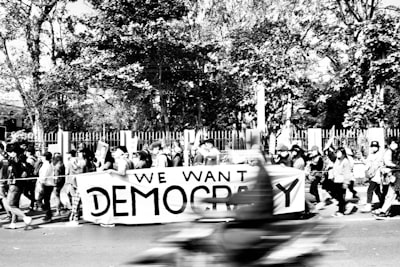The Impeachment Vote That Left Democrats Incensed: A Symptom of Deeper Divisions
Congress rarely surprises anymore, but the latest "rogue" impeachment vote—aimed at Donald Trump over his Iran policy—ignited a firestorm on Capitol Hill. The backlash from Democrats was swift and severe, with accusations of recklessness and self-interest echoing through the party’s ranks. Was this a genuine act of principle, or political theater in its rawest form?
A Fault Line Exposed
At the heart of the controversy is a single, uncoordinated push to impeach Trump for his administration’s Iran actions. For many Democrats, this didn’t just undermine party discipline—it risked splintering the focus of ongoing legal and political struggles. House leadership branded the move "completely unserious and selfish," exposing a rift between procedural unity and individual expression.
Who, What, and Why
Key Players:
- Donald Trump: Former President, accused of reckless escalation with Iran.
- House Democrats: Officially opposed the rogue impeachment attempt, favoring strategy and timing.
- Rogue Lawmakers: A small group frustrated with perceived inaction or weak responses to Trump’s foreign policy.
Key Concept:
The impeachment mechanism was designed for grave abuses of power, but repeated or partisan deployment can blunt its impact and sway public opinion.
Table: Perspectives on the Rogue Impeachment Vote
| Perspective | Arguments For | Arguments Against |
|---|---|---|
| Pro-Impeachment | - Holds Trump accountable for Iran escalation - Symbolic statement against executive overreach |
- Politically divisive - Lacks broad support or clear evidence |
| Party Leadership | - Maintains message discipline - Avoids political fatigue |
- May frustrate activist base - Appears overly cautious |
| Public Perception | - Some see boldness, others chaos | - Risk of "impeachment fatigue" - Undermines major investigations |
Deeper Consequences: Beyond the Vote
This episode isn’t just about individual ambition; it exposes a fundamental dilemma in modern governance: Should lawmakers act as principled mavericks or stick to collective strategy? The temptation to stage symbolic votes has grown with social media’s pressure for visibility and instant reactions, but the cost is real—especially if such acts muddy broader accountability efforts.
Notably, this internal skirmish happened against the backdrop of widespread concerns about executive power and America’s volatile relationship with Iran. Political theorists warn that repetitive, uncoordinated impeachment calls could sap the gravity of the process, making it harder for Congress to act when real constitutional crises emerge.
Broader Trend: The Fractured Opposition
This fiasco is emblematic of the Democrats’ wider struggle: how to balance passionate internal factions with the discipline needed to effectively challenge Trump and the larger Republican agenda. If progressives feel stifled, while moderates fear backlash, the party is left with a communication minefield—and potentially, a weakened legislative hand.
Insight: The future strength of impeachment as a constitutional safeguard may rest on parties' ability to channel dissent constructively, rather than letting frustration devolve into uncoordinated action.
This article was inspired by the headline: '"Completely unserious and selfish": Democrats fume at rogue Trump-Iran impeachment vote. - Axios'.

Comments
No comments yet. Be the first to comment!